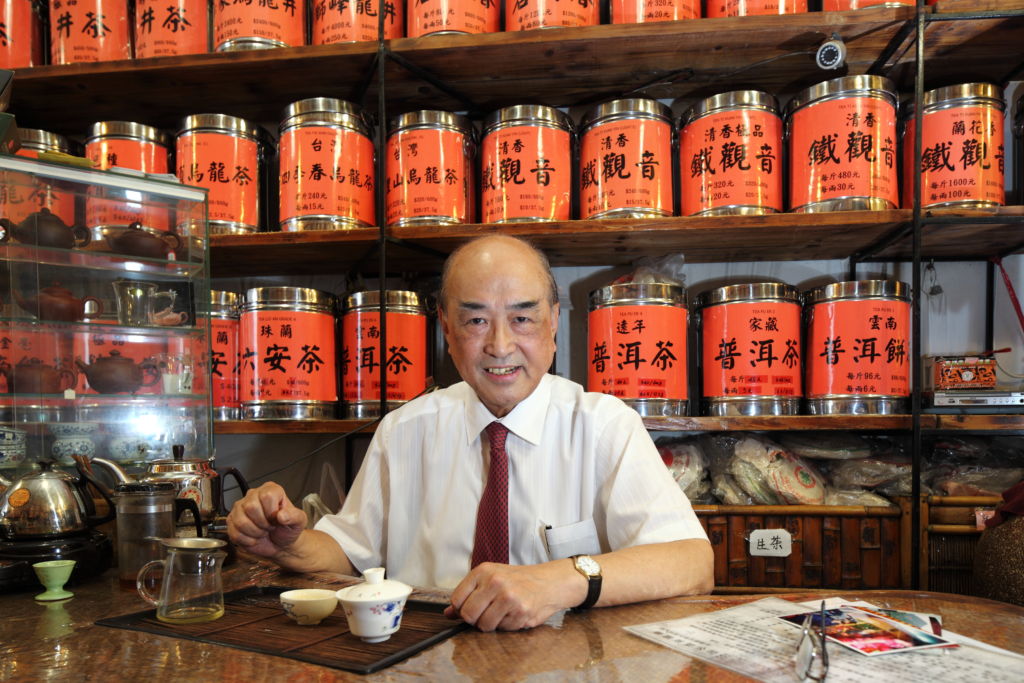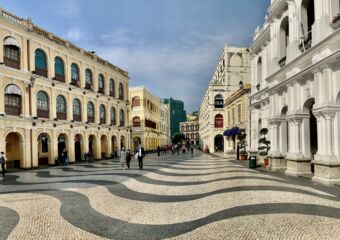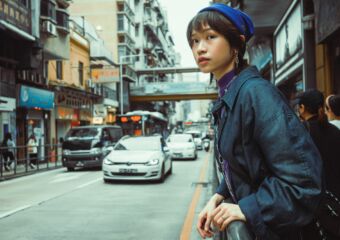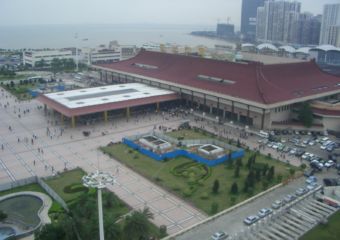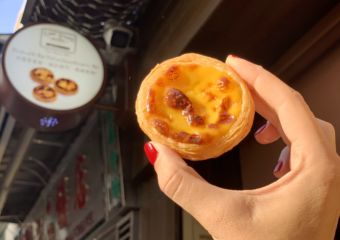Featured image: Mr. Tsang Chi Fai at Va Lun Tea Shop
According to Chinese legends, the history of tea dates back to 2737BC when Shennong, whose name means the Divine Farmer, decided to take a rest under a camelia tree and boiled some water to drink when a few dry leaves from the tree above him fell down into the pot, infusing the water, which originated the beverage we nowadays call tea.
Although people enjoy tea all around the world, this is a drink deeply rooted in Chinese culture. With this in mind, we decided to track down tea shops in Macau.
A Special Place Set on Authentic Macau
We roamed around old Macau on the hunt for a tea shop where the love, appreciation for tea and the ritual of drinking it was palpable and, simultaneously, a place that bore history. Fortunately, our path led us to Va Lun Co. an over 50-year-old local tea shop at Rua Cinco de Outubro. The street is one of those that undoubtedly resonates the real feel of Macau, brimming with small traditional businesses, a food stall, and a temple.
As we got there, the language barrier arose, but it would soon be sorted out. A welcoming smiley face, Mr. Albert Tsang, greets us and asks what he can do for us. But first, tea! Mr. Tsang asks what kind of tea we prefer. We mention that we were hoping to have any tea of his preference. Then it would surely have to be green. He asks if we’ve eaten recently and we let him know we had breakfast two or three hours ago. In that case, we can’t possibly go for green tea, he advises. Our stomachs must be properly full before drinking green tea. Lesson number one is learned, and we opt for white tea instead. A favorite amongst ladies, he adds and smiles while starting the kettle on. Mr. Tsang can tell we are total amateurs as far as tea is concerned, but that doesn’t seem to be a problem for this friendly gentleman.
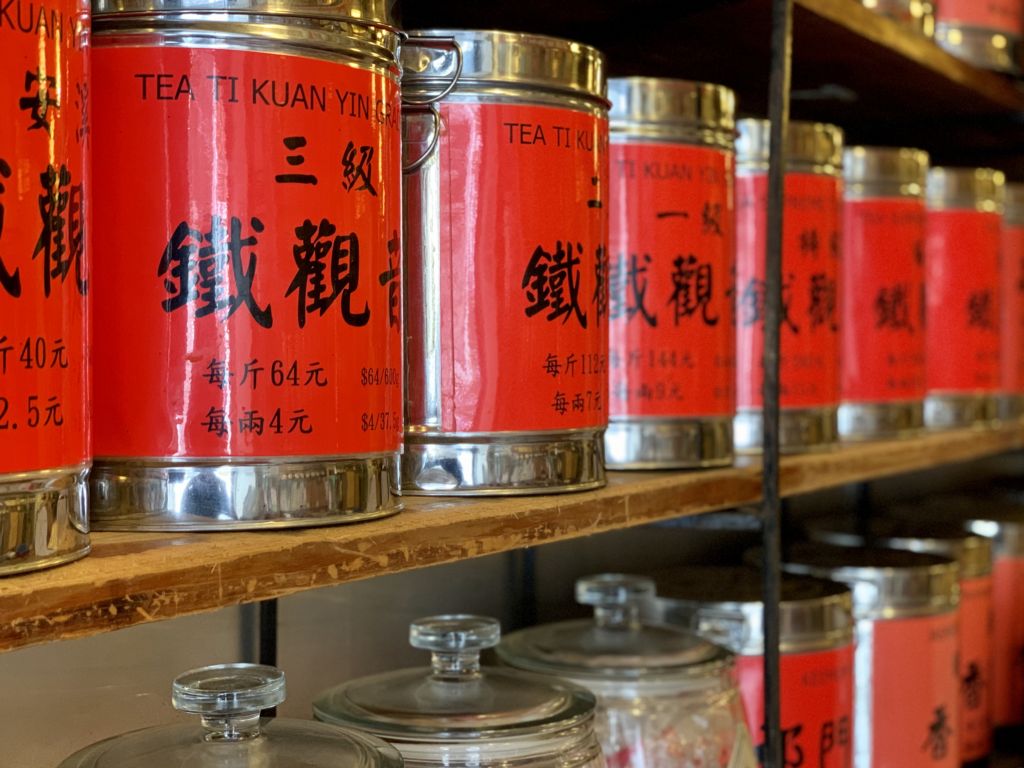
Tea at Va Lun Tea Shop
Take the Time to Appreciate Tea
Mr. Tsang selects a blend of two types of white tea, and we notice that one of the teas used in the blend is extremely expensive (over MOP $1,000 for 600 grams of tea leaves, while there are plenty of options priced around MOP $200!). He goes on to explain why some teas will cost more than others, and we learned that it has to do with a very basic market principle, that of scarcity. These young, long, well rounded, whitish-grey buds (often referred to as silver needles) from Fujian Province, are scarce and thus pricey. Therefore, Mr. Tsang uses a mix of these young buds with the more affordable not so young white tea plant buds to prepare the tea he kindly serves us. The first cup served is to be wasted. “Just to wash up the teacup”. The second one is to be enjoyed. As time passes and the tea leaves work their magic, each cup tastes different than the other. The process of preparing and drinking tea is intrinsically related to time. Mr. Tsang serves us a third cup of tea and exclaims, “The third cup is the best one!”. Indeed it was.
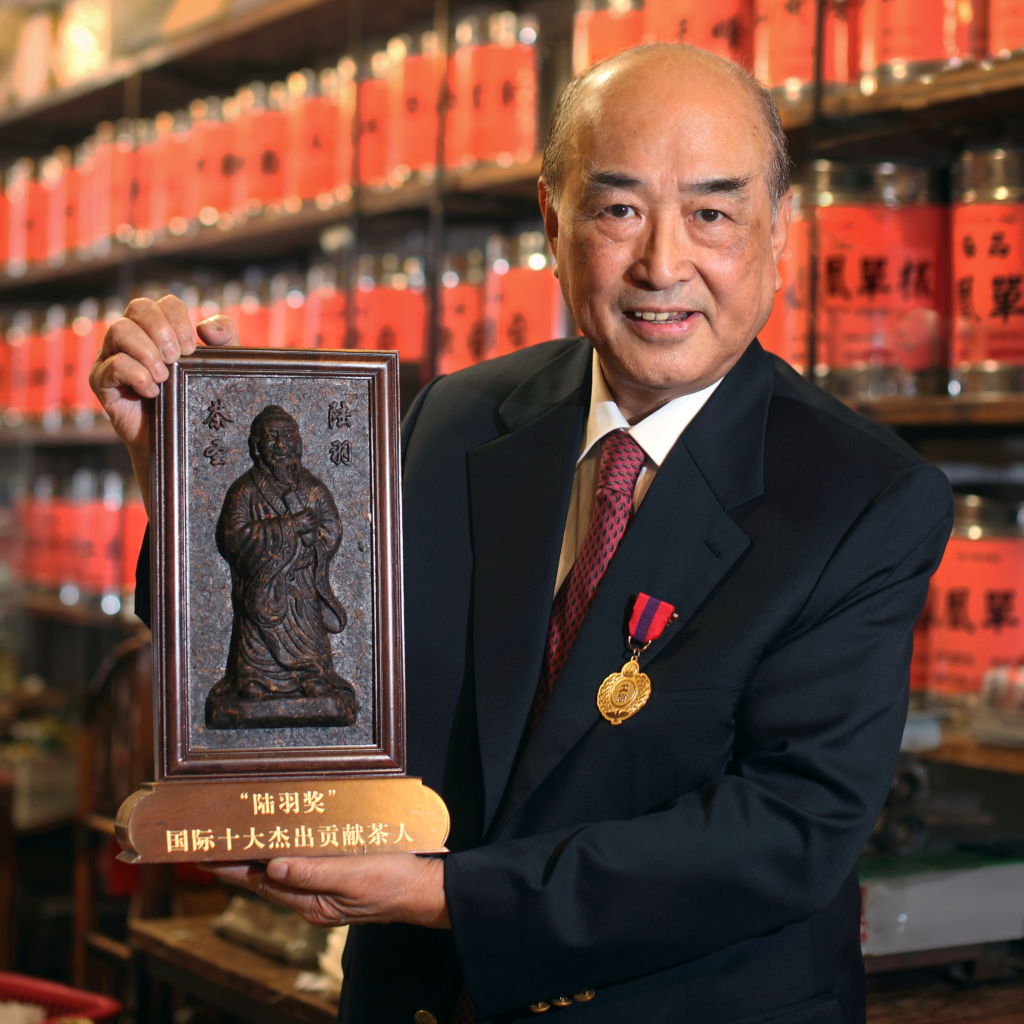
Mr. Tsang Chi Fai proudly holds a prize awarded to him by the Chinese government
From Chinese Wine to Tea
On another visit to Va Lun Teashop, we met with the founder, Mr. Tsang Chi Fai, father to Mr. Albert Tsang. Mr. Tsang is 85 years old and still works seven days a week during the morning. He first ventured into business alongside his own father, at the age of 24, trading Chinese wine in Macau, Hong Kong and exporting abroad to Australia, USA and so on. However, he explains, people “stopped consuming Chinese wine and they started drinking beer instead, as they found it good and cheap”.
Mr. Tsang founded Va Lun Tea Shop back in 1965 in Rua Cinco de Outubro (just a few steps further down its current location) with four other partners. At the time, they were selling not only tea but also rice paper, beans, and other goods. Back then, since most tea shops performed poorly, the government invited merchants to commercialize tea in the context of a grocery shop, making available several goods in one place. As time passed and the business grew, things changed. As he recounts, Mr. Tsang’s business partners were unwilling to invest at the time and therefore he decided to acquire their shares, setting on a new path and enabling the business to grow. He was never reluctant to take risks, even if it meant losing money on the first year of operation, which made his father angry at him back then!
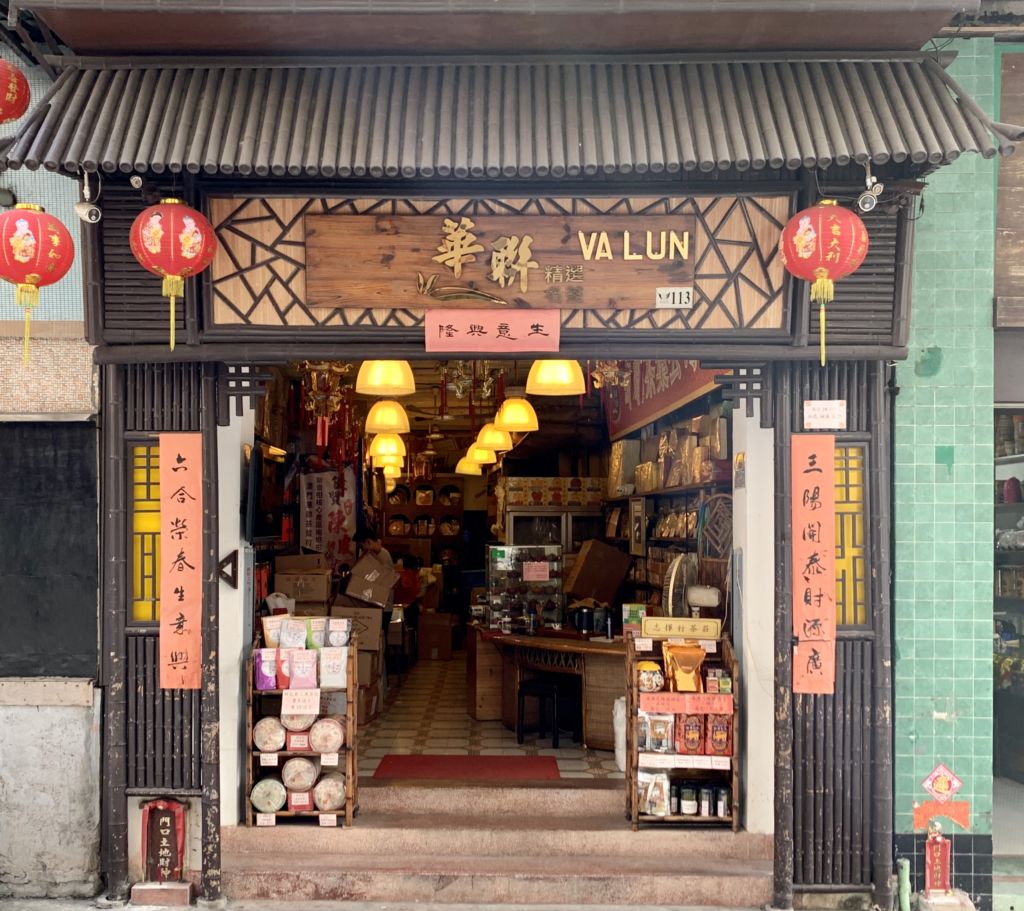
Va Lun Tea Shop at Rua Cinco de Outubro
Rich in Tea
Va Lun’s most significant share of business relies on wholesale, as they sell tea to many of the hotel and casino operators, and major hospitality players in Macau. In that sense, the profound changes Macau underwent in the past decades have been good for business. In addition, visitors from mainland China, Korea, and Japan make for the biggest bulk of Va Lun’s walk-in costumers. They carry six different types of tea: pu’er, green, white, yellow, jasmine, and oolong, some of which are rare and decades old. The teas available come mostly from China but also from Sri Lanka and Taiwan.
A key-factor of being in the tea business is to be able to store big amounts of product. This requires space and space comes at a premium these days. In order to secure a steady supply, some of the wholesale clients require Mr. Tsang to keep six months’ worth of merchandise in storage. To avoid losses, Mr. Tsang says that knowing when to buy is crucial. The answer is linked to weather conditions–rainy season is terrible to store tea. Cool, dry weather, on the other hand, is perfect to buy in quantity and store.
Today the business is extremely successful, even though, both father and son joke, it did not make them rich. “We’re not rich in money but we are rich in tea!”. As with any other business, things weren’t always easy. Hato Typhoon caused serious damages on the shop and all stock was lost. But the family got things back together again and is now focused on the present and future. Nowadays they employ over thirty people and own three neighboring shops at Rua Cinco de Outubro. The last to open was inaugurated in 2015. They have two tea shops in Mainland China and the third is set to open soon.
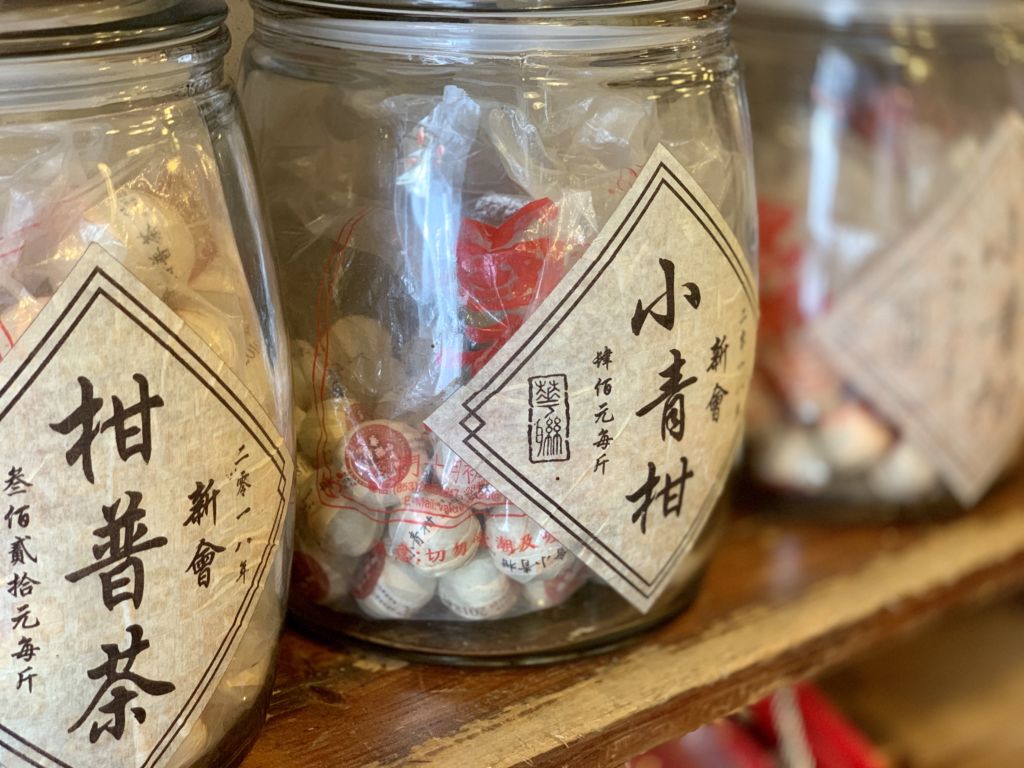
Va Lun Tea Shop
The Way to Know a Place
The reason we love businesses like Va Lun is that they allow us a peek into a very local world that expats or visitors so often do not get a chance to properly dive in. The business has grown, that’s for sure, but it still feels like a family affair. You are still welcomed as if you were the only customer to ever walk in: with their undivided attention.
As you walk down the street leading to Va Lun you witness locals out and about their everyday lives: a mother strolls with her baby; a gentleman stops by the dim sum shop to take away lunch; a lady carrying groceries and fresh flowers walk in the temple, all while people greet each other.
Even though we’re all up for the touristy stuff, checklists and main attractions, this definitely felt like a wonderful way to mingle and actually get to really know a place. On top of that, stock up on your favorite tea, get some to gift a special someone and perhaps purchase a beautiful tea set as you’ve been meaning to for a while. Or just feel free to go inside and ask about their tea and try a few too. You’ll definitely be warmly welcomed!
Va Lun Co 108 Rua 5 de Outubro, Macau, +853 2892 0724

